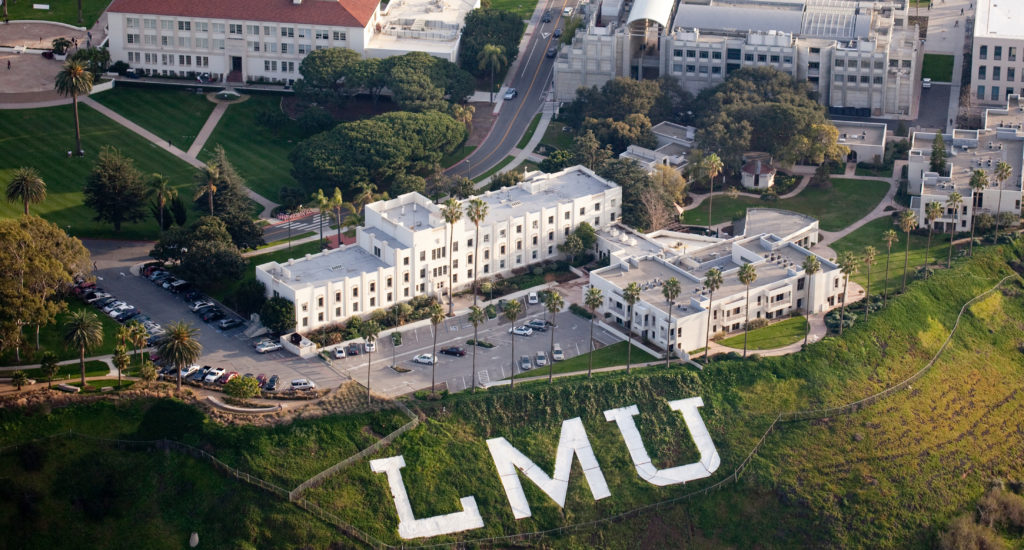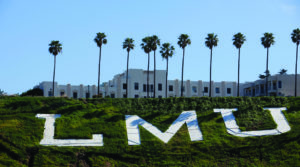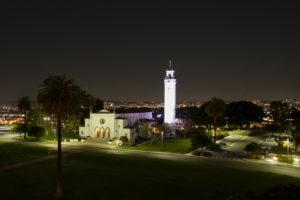MISSION AND MINISTRY | “I walked down the hall and I passed four beds in a row where patients had less than 65 percent oxygen levels,” said Daniel Chavira ’97, M.D., who runs the unit responsible for outpatient treatment of high risk COVID-19 patients at Martin Luther King Jr. Community Hospital. Chavira is primarily an emergency physician on the MLK front lines, but also acts as a lead in the airway teams that are responsible for intubating, coding, and performing life-saving procedures on inpatient COVID-19 patients.
“I had this realization that at no other point in my career had I been surrounded by so many people who were so horrifically ill, and for whom we had no specific, powerful therapies and only the vaguest of guidelines to help them; despite our best efforts, they were alone, isolated from their families and even contagious to the staff helping them. They were struggling alone, praying for help in a vacuum.”
If Los Angeles is the epicenter of COVID-19 in the U.S., then MLK Community Hospital is the center of that storm, Chavira says. “At its worst, people were coding every hour,” he said. “We had expanded our capacity five times over normal. All the patients in our regular rooms were all severely sick and in isolation to prevent spread, so we had to improvise and raise tents, see people outside, wherever we could. We used every available space for patient treatment, even converting board rooms.” Chavira and the MLK teams are rallying to support these patients and LMU’s Center of Religion and Spirituality (CRS) is rallying to support first responders.
When the COVID-19 pandemic started, the CRS team quickly realized how important it was to support first responders. “This community of police officers, firemen, and medical personnel carries us during the worst of times, when we are at our greatest need,” said Elsy Arévalo, assistant director at CRS. “They have been particularly hard hit during the pandemic, but this is always their job – to be there for us when we need them most.”
Arévalo added, “We wanted to find a way to help safeguard them, support them as they support us by offering ways to process and discuss the trauma they see on the front lines every day and to find the practices and skills that could help them heal and grow.” Gathering a panel of experts who work with people on the front lines, the center created four 90-minute webinars, “Cultivating Well-Being in First Responders,” to provide insight, guidance and tools for first responders. The webinars explored the practices and skills needed to help first responders turn the adversity they faced every day into a life-giving spiritual path leading into greater wisdom, healing and wholeness.
Close to 2,000 police, firefighters, medical personal and those who support them have attended the webinar series. The webinars are divided into four topics: “Much More than a Job or Career,” “Working on the Friendship with Yourself,” “Rocking with Adversity,” “Rediscovering and Cultivating Calm.”
Father Jim Clarke, Ph.D. was one of three faculty members who created the program. Father Clarke believes front line workers are terribly underserved by the Catholic Church. He also has three family members who are first responders and he wanted do his part to pay it forward. “Front line workers have been experiencing major grief for almost a year,” Father Clarke said. “They are exhausted. They are lonely and feel like things are out of control. We wanted to provide a space for them to process what they are going through,” he said. Father Clarke helped create this program to let frontline workers know their emotions are legitimate, to offer support and to create a space for them to unwind and have fun. He believes self-care is critical for all people and that we can’t separate different aspects of our lives. “There is a holistic approach to the human condition. The best way to honor it is to bring all aspects of our life together and that is the greatest witness we can give,” said Clarke.
Chavira said the webinars highlighted paths to converting trauma to growth; they affirm that his journey as an emergency room doctor during the COVID-19 pandemic can, in the end, strengthen the bedrock of his faith and help him to grow beyond it. To watch the webinars, click https://crs.lmu.edu/firstresponders/.




